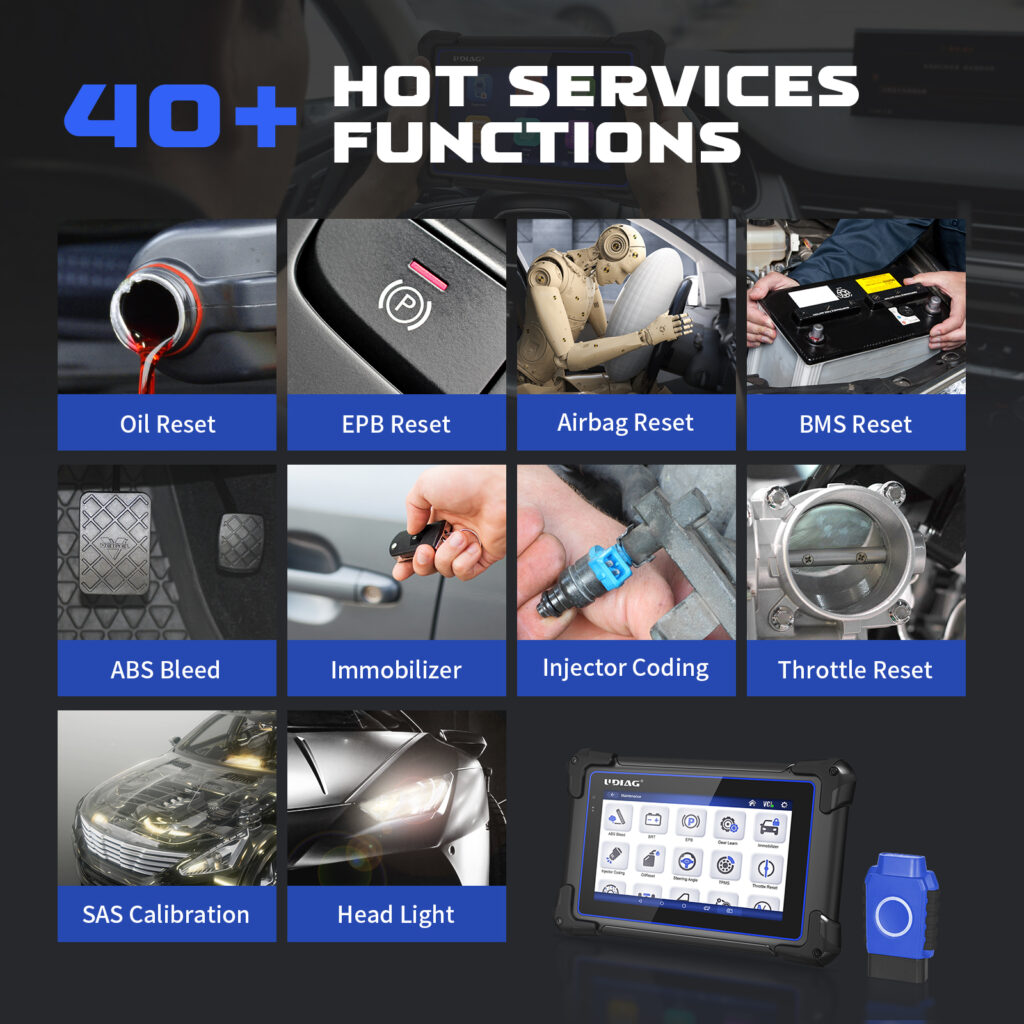For car maintenance, are all Car Diagnostic Tablet the same?
2023-12-31 by UDIAG
Car maintenance is a critical aspect of ensuring the longevity and performance of our vehicles. In the digital age, the emergence of advanced tools like Car Diagnostic Tablets has revolutionized the way we approach automotive care. These tablets play a pivotal role in diagnosing and identifying issues within a vehicle’s complex systems. However, the question arises: are all Car Diagnostic Tablets the same? This essay delves into the intricacies of these devices, exploring their types, key features, popular brands, limitations, and considerations to help consumers make informed decisions.
I. Types of Car Diagnostic Tablets
Car Diagnostic Tablets come in various types, with OBD-II Diagnostic Tablets and Manufacturer-Specific Diagnostic Tablets being the most prevalent. OBD-II Diagnostic Tablets provide a broad overview of a vehicle’s health, reading codes related to engine performance and emissions. On the other hand, Manufacturer-Specific Diagnostic Tablets are designed for specific brands, offering enhanced capabilities tailored to brand-specific systems, allowing for a more in-depth analysis.
II. Key Features to Consider
When choosing a Car Diagnostic Tablet, several key features should be considered. Compatibility is crucial, including compatibility with OBD-II protocols and specific car manufacturers. The user interface, whether touchscreen or button-controlled, plays a role in the device’s usability. Functionality is another vital aspect, ranging from basic code reading to advanced diagnostics for systems like ABS, airbags, and transmission. Regular software updates are essential to ensure compatibility with the latest car models and systems.
III. Comparison of Popular Car Diagnostic Tablets
Several reputable brands dominate the market, each offering unique features. Launch Tech, Autel, Innova, and Bosch are among the top contenders. A comparative analysis involving pricing, features, and customer reviews can assist in making an informed decision.
IV. Limitations and Considerations
While Car Diagnostic Tablets are invaluable tools, they do have limitations. Users should be aware of device limitations, the potential learning curve associated with these tools, and factors affecting reliability and accuracy.
V. Tips for Choosing the Right Car Diagnostic Tablet
To choose the right Car Diagnostic Tablet, users should define their specific needs, conduct thorough research, consider long-term usability, and be mindful of budgetary constraints. A well-informed decision ensures that the chosen device aligns with the user’s requirements.
VI. Future Trends in Car Diagnostic Technology
The world of Car Diagnostic Tablets is ever-evolving. Future trends may include greater integration with smart devices, cloud-based diagnostics, and the incorporation of artificial intelligence to enhance car maintenance capabilities.
Conclusion
In conclusion, not all Car Diagnostic Tablets are the same. A careful consideration of types, key features, popular brands, limitations, and future trends is essential in making an informed decision. Investing in the right Car Diagnostic Tablet is not just about diagnosing current issues but also about future-proofing your ability to maintain and care for your vehicle effectively.
FAQs
1. What is a Car Diagnostic Tablet, and why is it essential for car maintenance?
A Car Diagnostic Tablet is a portable device designed to interface with a vehicle’s onboard computer systems, providing information about its health and performance. It is crucial for identifying and diagnosing issues, ensuring timely maintenance and preventing potential breakdowns.
2. How do OBD-II Diagnostic Tablets differ from Manufacturer-Specific Diagnostic Tablets?
OBD-II Diagnostic Tablets offer a broad overview of a vehicle’s health and are compatible with a wide range of car models, focusing on standard OBD-II protocols. In contrast, Manufacturer-Specific Diagnostic Tablets are tailored for specific brands, offering advanced diagnostics and compatibility with brand-specific systems.
3. What key features should I consider when choosing a Car Diagnostic Tablet?
Consider compatibility with OBD-II protocols and specific car manufacturers, the user interface (touchscreen or button-controlled), functionality (basic and advanced diagnostics), and the importance of regular software updates for compatibility with the latest car models and systems.
4. Are all Car Diagnostic Tablets compatible with every car model?
No, compatibility varies among Car Diagnostic Tablets. Some are designed to work with a wide range of models, while others are specific to certain manufacturers. It’s crucial to check compatibility before making a purchase.
5. How do I choose the right Car Diagnostic Tablet for my needs?
Define your specific needs, conduct thorough research on popular brands, consider the long-term usability of the device, and be mindful of budget constraints. Reading customer reviews and seeking expert advice can also help in making an informed decision.



